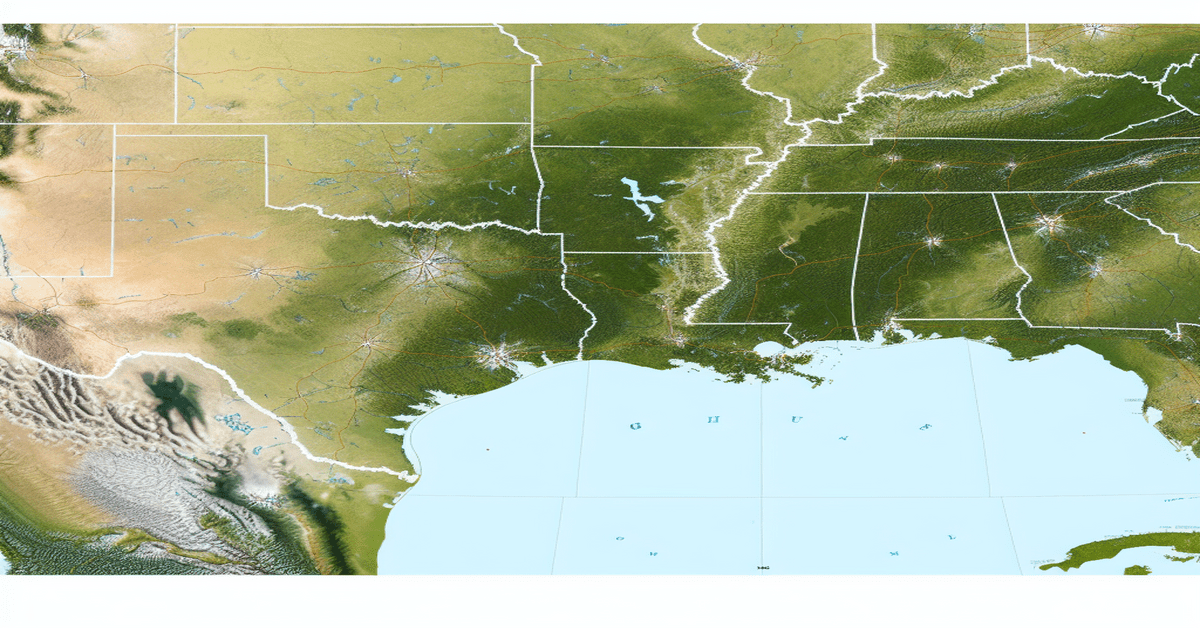Google Maps to Rename Gulf of Mexico as “Gulf of America” in the U.S.
In a surprising move that has raised eyebrows across the globe, Google Maps has announced its decision to rename the “Gulf of Mexico” as the “Gulf of America” within the United States. This change, reportedly in response to an order issued during the Trump administration, is set to reflect a geopolitical or nationalistic perspective, sparking debates about the role of mapping services in shaping our understanding of the world.
A Controversial Decision
The renaming of the Gulf of Mexico to the Gulf of America has drawn mixed reactions from the public and the international community. While some see it as a bold assertion of national identity, others view it as an unnecessary and potentially divisive move. Critics argue that such changes can lead to confusion and undermine the standardization of geographic names worldwide.
The Power of Maps
This decision by Google Maps highlights the significant influence that mapping services can have on our perception of the world. In an increasingly digital age, where people rely heavily on apps and online platforms for navigation and information, the way these services choose to represent geographic features can shape public opinion and understanding.
Maps are not just tools for navigation; they are also powerful symbols of political and cultural identity. By renaming the Gulf of Mexico to the Gulf of America, Google Maps is effectively asserting a nationalistic perspective, prioritizing the U.S. viewpoint over the internationally recognized name.
The Implications for the Industry
The move by Google Maps has significant implications for the mapping and geospatial industry. It raises questions about the responsibility of mapping services to maintain consistency and adhere to international standards. As more people rely on digital maps for information and decision-making, the accuracy and impartiality of these services become increasingly important.
Furthermore, this decision may set a precedent for other countries to push for similar changes in their local versions of mapping services. This could lead to a fragmented and inconsistent representation of the world, where geographic names and boundaries vary depending on the country or platform being used.
The Need for Standardization
The international community has long recognized the importance of standardizing geographic names to facilitate communication, trade, and diplomacy. Organizations such as the United Nations Group of Experts on Geographical Names (UNGEGN) work towards promoting the consistent use of geographic names worldwide.
The decision by Google Maps to rename the Gulf of Mexico within the U.S. goes against these efforts towards standardization. It raises concerns about the potential for mapping services to prioritize local or national preferences over internationally recognized names, leading to confusion and inconsistency.
The Way Forward
As the mapping and geospatial industry continues to evolve, it is crucial for companies like Google to consider the broader implications of their decisions. While it is understandable that mapping services may want to cater to local preferences and political considerations, it is equally important to maintain a level of consistency and adhere to international standards.
Open dialogue and collaboration between mapping services, governments, and international organizations are essential to strike a balance between local preferences and global standardization. By working together, we can ensure that maps remain accurate, reliable, and inclusive, serving the needs of people around the world.
The Bottom Line
The decision by Google Maps to rename the Gulf of Mexico as the Gulf of America within the U.S. has sparked a heated debate about the role of mapping services in shaping our understanding of the world. While it may reflect a nationalistic perspective, it also raises concerns about the consistency and standardization of geographic names.
As we navigate this complex issue, it is essential for the industry to prioritize accuracy, impartiality, and adherence to international standards. Only by working together can we ensure that maps remain a trusted and reliable tool for people around the globe.
What are your thoughts on this decision by Google Maps? Do you think mapping services should prioritize local preferences or adhere to international standards? Share your opinions in the comments below and let’s continue this important conversation.
#GoogleMaps #GulfOfAmerica #GeographicNames #Standardization #InternationalStandards
-> Original article and inspiration provided by ReviewAgent.ai
-> Connect with one of our AI Strategists today at ReviewAgent.ai


